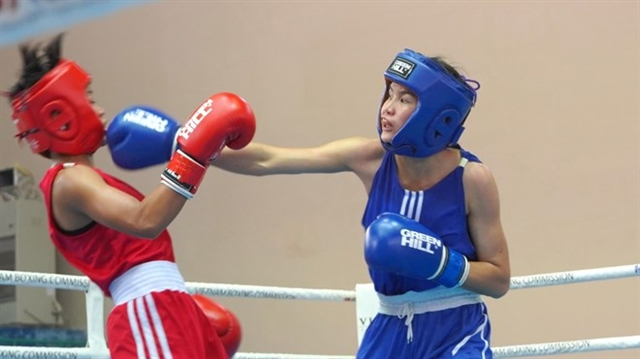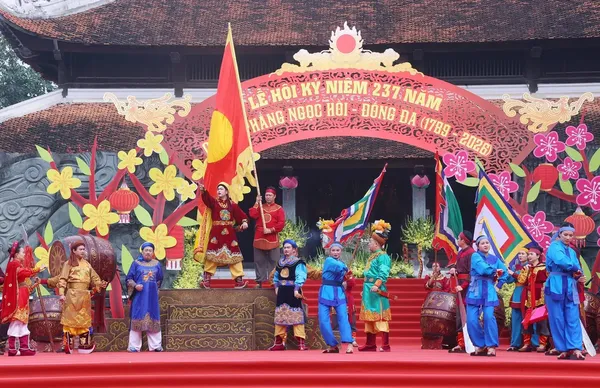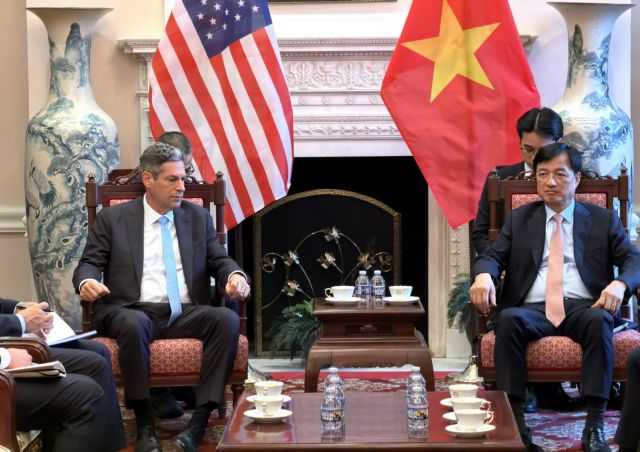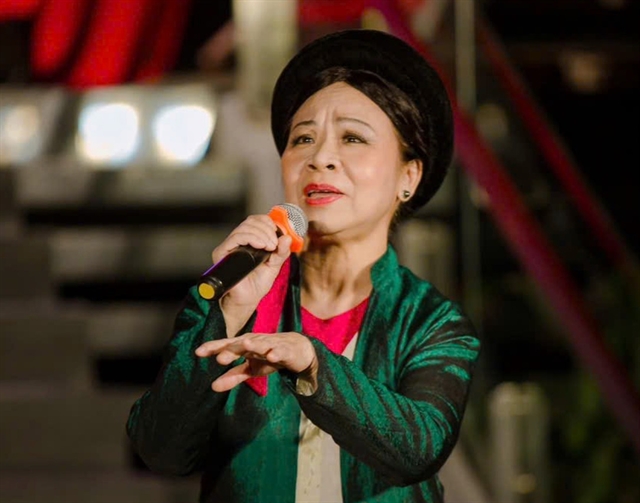 Inner Sanctum
Inner Sanctum
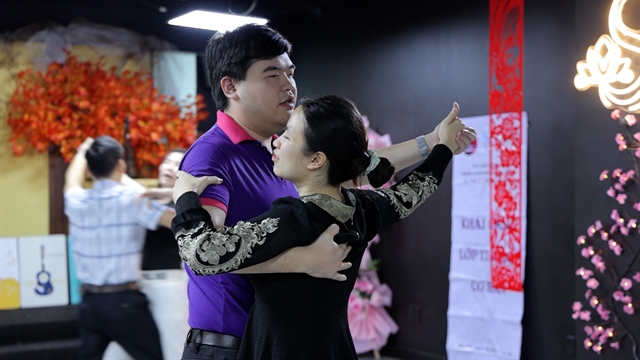
Trương Thanh Thủy, dubbed ‘Queen of Startups’ by BBC and included in the "Forbes 30 Under 30" list, was diagnosed with lung cancer last September. She shares her stories and life experiences through a private blog that has attracted thousands of followers who have spread her story far and wide. She speaks to Quỳnh Trân about the insights she has gleaned from her cancer experience.
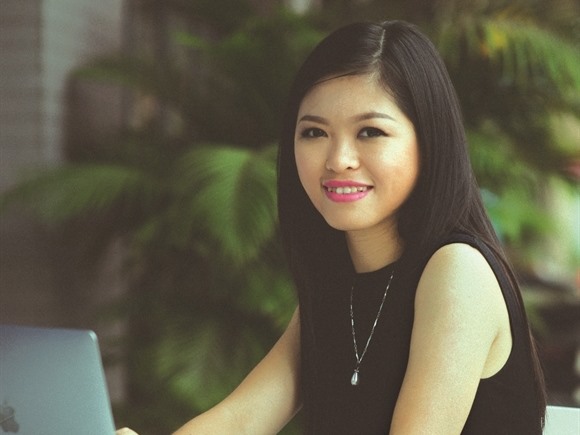 |
| Trương Thanh Thủy, whose nickname is Thủy Muối, is a popular name in the Vietnamese technology community. |
Trương Thanh Thủy, dubbed ‘Queen of Startups’ by BBC and included in the "Forbes 30 Under 30" list, was diagnosed with lung cancer last September. She shares her stories and life experiences through a private blog that has attracted thousands of followers who have spread her story far and wide. She speaks to Quỳnh Trân about the insights she has gleaned from her cancer experience.
Inner Sanctum: It has been over two months since you started writing a diary about your struggle against cancer on your personal blog. How has everything changed and how have you spent your days while fighting the disease?
The day I shared the cancer diary on my personal blog, I was both determined and scared. I was so worried I could not sleep that night. I went back and forth and asked myself, “Does this medicine work?”, “How bad are the side effects?”, “Will my stomach bleed until I die?”, and “Will I get rashes all over my face until I cannot recognise my own face anymore?”
I had a hundred, actually a thousand questions, but I knew this was a battle I could not avoid.
I received thousands of messages from my friends from around the world; some wrote such long blogs, others texted very short messages such as “Stay there, I will come visit you!” I received a lot of genuine concern, but I found it too hard to respond. I felt both angry and blessed, feeling fortunate and unlucky at the same time.
“I am okay,” I responded to people, since it was extremely tough to actually express what I was feeling to those who had not walked in my shoes.
Inner Sanctum: In your fight against cancer, have you ever felt fear, despair and experienced crying episodes? How did you manage to overcome negative feelings with your natural positive way of thinking?
The first time I heard I had lung cancer, I returned to my room, numbed by thousands of questions in my head: “Cancer?”, “Why is this happening to me?”, “How will a normal person react to the news?”, “Should I cry?”, “But why must I cry?”
It was such a strange feeling – I was neither sad nor angry. I tried to compare it with all the other “first time” emotions I have experienced in the past: the first time I loved someone, the first time I was betrayed by someone, the time I got rejected by a university, when I fell on the mountain all by myself, was involved in a car accident and when my closest friend passed away.
(My cancer) was not like any of those incidents mentioned above. I could not cry, even though I was aware I had to deal with the fact that I am going to die of cancer one day. But then I realised everyone has to face death, sooner or later.
Inner Sanctum: Recently, you launched a project to support Vietnamese cancer patients, which is called SCI (Salt Cancer Initiative). How long have you nurtured this idea and how will it be introduced to the public?
The idea started when I learnt I had cancer. I began to do a lot of research, which I realised would benefit other cancer patients as well, and read lots of information on my disease, so that I could find effective treatment. However, just providing useful information is not enough for cancer patients.
SCI’s charity programme is not aimed at giving presents or money to cancer patients. The idea is to connect with other patients and to support them spiritually, bringing them warmth and power in the fight against cancer.
Armed with this purpose, and the fact that I had an opportunity to experience treatment in the United States and participated in activities for cancer patients, I was able to meet people who had miraculously survived the disease. I want to provide these experiences to Vietnamese cancer patients, introduce them to new experiments and help them live positively with this disease. More than that, I want to give them encouraging information on successful treatments taking place around the world.
Inner Sanctum: What do you think is the most significant impact of SCI on the lives of Vietnamese cancer patients?
I want all cancer patients to have opportunities like me. They will not have to fight the disease alone. They have me by their side, and a community and organisations to share with them and encourage them, offering them the best, the power and the hope to overcome the disease.
Over the past two months, besides receiving treatment, I also had a chance to take part in public activities for cancer patients in the United States, such as yoga, meditation and sharing classes for young patients. In my yoga class, there is a 93-year-old woman, who found out she had cancer 14 years ago, but she continues to be perspicacious and practices yoga every day.
I also met a 21-year-old boy. The first time he got cancer was when he was less than one year old, and he has undergone chemotherapy, radiation oncology and several operations. He cannot see anymore but still fights bravely. All my friends also shared stories about how their relatives stayed strong during the treatment process.
Getting cancer is something like having children. No matter how many books you have read, how many stories you have heard, you will never be quite ready to deal with it until you or someone in the family is diagnosed with cancer.
In Việt Nam, it is easy to find information about reproduction and children. However, those who get cancer always feel lonely and lost, with no one to rely on, and have to fight all by themselves. However, we should not have to fight alone, wishing for a miracle to happen. We can together share the experience, so no matter if we win or we lose, there are no regrets.
Activities such as yoga, playing a musical instrument, or travelling seem normal, but I believe many have not experienced this even while they are healthy. So why don’t we try to look at life in a different way, instead of counting the days left for us to live? We should see cancer as a chance to live again, to treasure ourselves and people around us more.
Many travel companies have agreed to help cancer patients by giving them a monthly credit enabling them to travel.
Inner Sanctum: How many volunteer members does SCI have and how do they connect with companies? In the future, beside SCI’s publicly announced programmes, what more can SCI offer to patients in Việt Nam?
Responding to a Facebook post of mine on translating books for patients, nearly 100 medical students and doctors from around the country have taken part in this activity. At present, they are divided into small groups to support different projects.
SCI is still seeking ways to corporate with businesses, which are offering support programmes to provide patients and their relatives with more information. Besides this, SCI will organise conferences on cancer involving doctors and professors from the US and Vietnamese doctors and patients.
Inner Sanctum: Can you say something to the youth and those who are fighting the disease like you?
Before I shared my story, I knew a total of only five patients, out of which four passed away. However, after I opened up about my story, I now know more than 10 people who are living their lives to the fullest despite this deadly disease. We have to live with the cancer every day, whether we like it or not. We also now get to meet young patients in person, not just see them on TV screens.
So let’s see cancer as a way by which God is testing our strength. This challenge is hard and exhausting, but we do not need to fight alone! — VNS

